Please introduce yourself. Where are you from, what are you doing in Serbia and what were you doing before you arrived?
I am a retired lady from Canada! We have returned to my husband's city of birth, to enjoy a modest, affordable lifestyle which allows us to travel. Prior to retirement, I was an administrative professional, in management and administrative roles, specializing in healthcare.
What brought you to Serbia? How long have you been in the country?

We have been living in Serbia for only a few months. My husband who is older, was already retired. Planning one's retirement requires serious consideration of what is truly important, not what you think you want. We quickly realized that it would not be financially possible for me to take an early retirement in Canada. I suggested my husband's home town of Senta, Serbia. He is not a homesick sort but he understood my reasoning: he knows Hungarian and Serbian, and most importantly, he has friends and family here, providing us with a support structure not otherwise available. This fulfills the goals of our retirement: some financial freedom for travelling.
What is the process to move to Serbia?
This is tough. You really need to get rid of “stuff”: consider what is necessary, what you really want/need emotionally, and what can go into storage. Sell or give away the rest—think minimalist lifestyle. We utilized outdoor furniture in the dining room for weeks…a sense of humour is a must!
Almost anything can be shipped for a price. We did not bring our car, but chose to ship approximately 19 boxes. Some companies ship by weight, others by volume. One note of caution: it is important to list each and every item you ship into the country; how many socks, how many pairs of underwear etc.. Expect to pay duty if you are not a citizen, and remember that you will need to pay to transport your boxes to your new home.
Prior to leaving home, be sure to know the process to stay in the country. Is a visa required? Generally visitors are allowed to be in the country for six months, and must register at the police station. Of note, unless you own property in Serbia, the person who owns the home where you stay must be available to register you.
What is your favourite thing about Serbia, and what is your least favourite thing?

It has not been long enough to form a proper opinion, especially since I do not yet speak the language. (I study Hungarian each day as that is my husband's first language, and Senta is primarily Hungarian-speaking.) So far, I feel that I can eat my way across Serbia. I love the piac (market) here in Senta. The produce is fresh, plentiful, and inexpensive.
So far, my least favourite is that much of the workmanship is not up to the standards we North Americans expect. But Serbia is not a rich country and this fact must be considered.
Secondly we are experiencing unexpected intermittent issues transferring money from Canada—a work in progress!
How easy or difficult it is to find accommodation in Serbia, and what type of accommodation is available for expats?
No problem at all to find accommodation in Serbia. It should be noted that in the smaller centres, rental of a house seems to be against culture. You may find that your landlord a bit more “involved” than we North Americans are used to!
What are the year's biggest holidays in Serbia? What is some essential etiquette in Serbia?
It is important to remember that most holidays are two-day affairs. This year, Easter fell on the same day for both the Orthodox and Catholic religions.
The people here are very polite. Here in Senta, it is the custom to say hello upon entering any store and to say thank you and good bye upon leaving in Serbian or Hungarian. And as the bicycle culture is huge, motorists are much more considerate on the city streets—that cyclist could be a relative or a classmate.
How is the transportation system in Serbia? How do you move around?
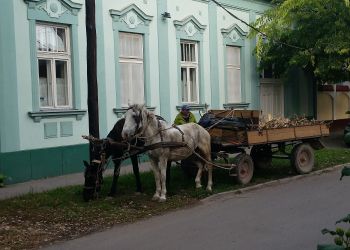
When I first got here, we did not have a car. We decided to take the train to another city to do some sightseeing. The ticket agent warned us that the train might not be available to come back. Why? Just because it happens sometimes.
We have a car now.
How is everyday life for you in Serbia?
A lot of socializing! And because most of our friends eat in the early afternoon, you really do need to get up early in the morning just to get your chores, cooking and shopping done.
What do you do in your free time?
I am on the computer a lot. Facebook is very big here, and I use Facebook Messenger and Skype to keep up with friends and family. Without modern technology, I would never have considered doing this.
What new habits have you developed in Serbia? And what old habits have you quit in Serbia?
We are more flexible as to when we have the big meal of the day. We still prefer the evening but our friends here prefer the early afternoon. And since we are all retired, it does not matter. The only “habit” that I have quit is that I no longer get up to an alarm clock! Retirement is grand.
What is your opinion on the cost of living in Serbia? How much does a bus ticket, a beer, and a loaf of bread cost?
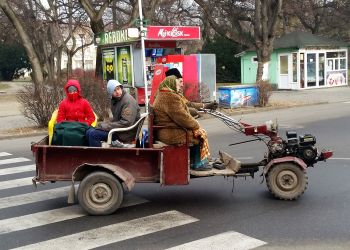
The cost of living here is certainly affordable from an expat perspective. There is no central transit here in Senta but the beer is cheap: 150 Serbian dinars which translates to about $1.79 Canadian. Bread is a staple here in Serbia, costing between 30 and 60 dinars (36 to about 71 cents per loaf, Canadian dollars).
What is something that you would like to do in Serbia but haven't had the opportunity to do yet?
Currently we live close to the Hungarian and Romanian borders. But I would also like to travel around Serbia—there is so much to see.
Share your most memorable experience in Serbia.
We love to entertain. One evening there was an unplanned gathering of my husband's school friends… friends almost from birth. I cannot describe the warmth among these people and was very happy that my husband kept in touch.
If you could do the move to Serbia over, what would you do differently?

It would have been terrific to have been able to come first to secure accommodation and perhaps plod through the bureaucratic paperwork. Not necessary, but nice to do ahead, if you can. And, I would have chosen to bring our little car.
What do you think of the local cuisine? What are your favourite dishes?
I have already told my friends that I am going to eat my way ‘cross Serbia... My old favourite, poppy seed on everything, is now “old”. I do not yet have a new favourite, unless it is Palinka.
What do you miss the most about your home country?
Homesickness is an elusive thing. When you are an expat, you miss the familiar—knowing how to do something, get something done for you, or where to go and buy it. I find that lack of knowledge of the language impacts on your sense of control of your life. But I believe that life is to be lived, and this is my adventure of a lifetime!
Have you had a moment that you almost felt like leaving Serbia? How did you overcome that? What kept you there?
When I arrived I became quite ill. In the midst of a feverish haze, you can believe that I wanted to go back to Canada right then and there. That is when I decided that the custom of putting the bathroom near the kitchen, not the bedroom, is a very bad thing. What keeps me here? After all I signed up for this adventure with my husband, to be able to travel, dine in other cultures and to enjoy and afford a reasonable but modest lifestyle…but the key is to enjoy life while still able.
What motivated you to create your blog 'Debbie Does Serbia'?

I hope to encourage others to think outside of the box when considering retirement. Retirement is no longer just stopping working full-time. There are other options. I have been approached by several people to say that my blog has encouraged them—in particular, retirement in Costa Rica, the RV experience through the United States. And rather than the traditional Canadian Snow Bird experience, some people will look further abroad as we did.
Plus, I figured I would encounter some interesting and even funny circumstances, and I was right!
Give us some useful tips that soon-to-be expatriates in Serbia will benefit from.
Plan ahead, set a timeline. Use all of the resources you can: sites such as Expat.com can answer questions and even put you in touch with like-minded people. Double-check the legalities; in countries such as Serbia the bureaucracy is unbelievably daunting. Know what needs to be done and when.
If you had to advise an expat on five items to bring with them to Serbia which would they be?
Medication list: most can be purchased inexpensively at the pharmacy without a prescription
Credit card that can be used internationally
Automatic car—available but expensive
Pepto Bismal (need I say more?)
Peanut Butter— hard to find at a reasonable price
What is one thing that you will take with you from Serbia?
The people that welcomed me with open arms… and some good Palinka.
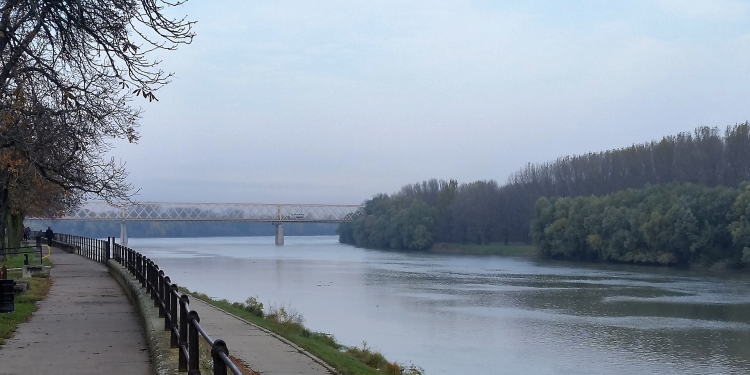
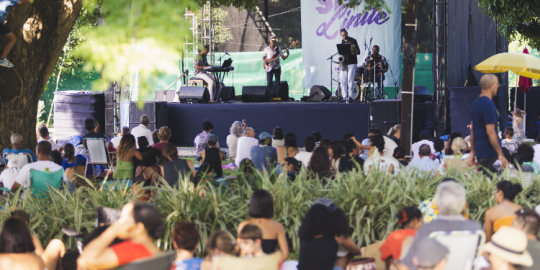


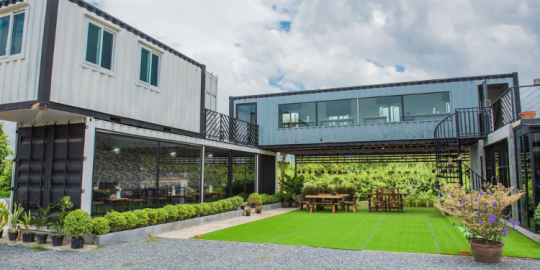
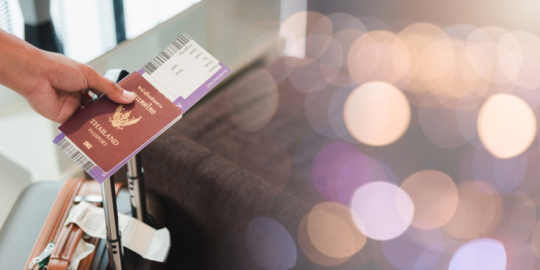
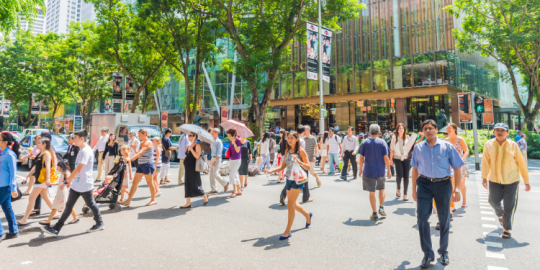










Contact us to be featured in the Interviews section.
Participate